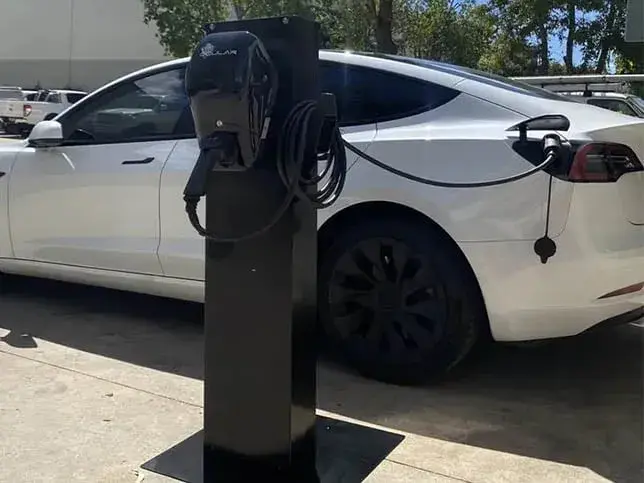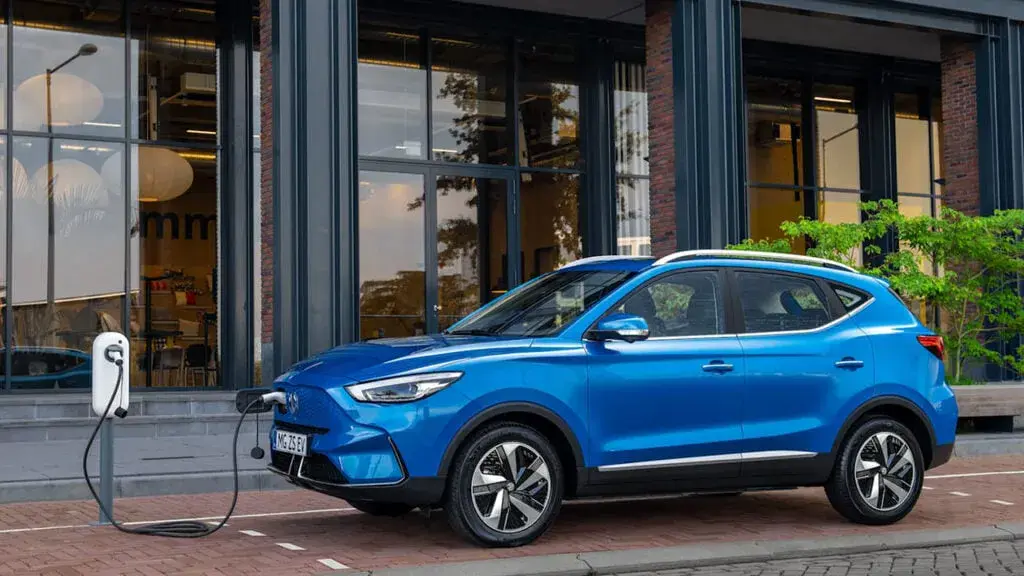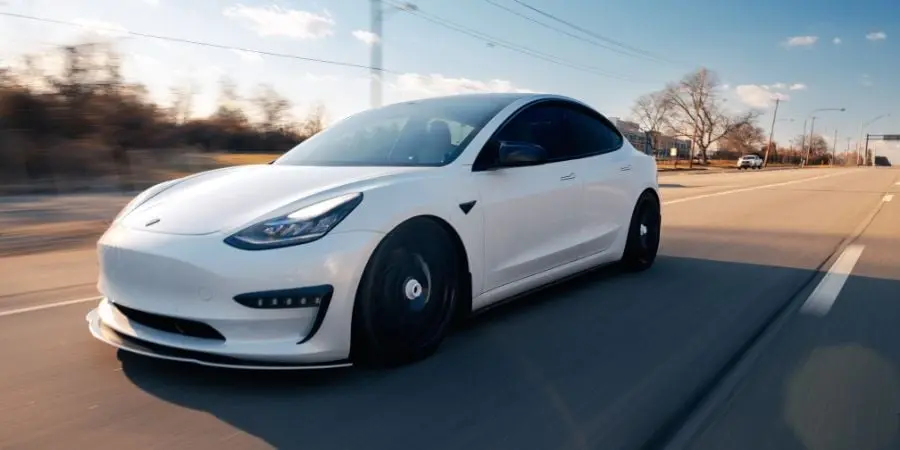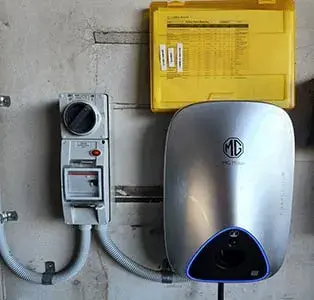Read Time: 10 min
Last Update: 28 October 2025

Want to know more about installation pricing?
Fast, licensed installs with upfront, no-surprise pricing.
When you switch to an electric vehicle (EV), one of the first questions you’ll likely ask is, “How long does it take to charge an electric car?” Whether you have a Tesla Model X, a Renault Zoe, or another electric car, understanding the charging time can help you plan your daily routine more effectively.
In this blog, we’ll break down the factors that influence charging times, the different charging options available, and the best practices to make sure you’re always ready to hit the road.
Charging an electric vehicle is far different from filling up a traditional car with fuel. The process depends on several factors like your charging station, the type of charger you use, and the size of your vehicle’s battery. Unlike gasoline vehicles, EVs rely on electricity from charging points to power their batteries. The time it takes to charge an EV varies based on these factors, and understanding them can help you figure out the best way to charge your car at home or when you’re on the go.
The time it takes to charge an EV isn’t always straightforward. Several elements can affect the charge rate, charge speeds, and overall time to fill up your EV’s battery. Below are some key factors that will impact how long it takes to charge your vehicle.
One of the main factors influencing how long it takes to charge an electric car is the battery size. EVs come with batteries of different sizes, measured in kilowatt-hours (kWh). The larger the battery, the longer it takes to charge from empty to full. For example, a Tesla Model 3 with a larger battery pack will take more time to charge than a smaller car like the Renault Zoe, which has a smaller battery.
The power output of the charger also plays a significant role. Standard home chargers might provide around 3.6kW, while fast chargers or DC charging stations can supply up to 350kW. A higher power output allows you to charge your EV more quickly. Understanding the charging power of the charger you’re using will help you gauge how fast you can recharge your vehicle’s battery.
The state of battery or SOC refers to how much charge your vehicle’s battery already has when you start charging. If your EV is near empty, it will take longer to charge than if it’s already half full. As the battery gets closer to full, the charge rate may slow down, which is why it’s often quicker to charge from 20% to 80% than from 80% to 100%.
There are several charging options for your EV, each with different charge speeds. Some are perfect for home use, while others are designed for fast charging on the go. Let’s take a look at the different charger types and how they affect the time it takes to charge an electric car.
A Level 1 charger is the most basic type and uses a standard 120V outlet. It’s a great option for overnight charging or if you have access to a regular outlet at home. However, it offers the slowest charging speed, typically adding around 2 to 5 miles of range per hour of charging. It may take hours to charge a fully depleted battery with this setup, especially for cars with a larger battery.
A Level 2 charger is faster than Level 1 and uses a 240V outlet. It’s ideal for home charging points and can charge most EVs at a rate of around 10 to 60 miles of range per hour. With a Level 2 home charger (usually rated at 7kW), it typically takes around 4-8 hours for a full charge, depending on your car’s battery size and how much charge is left.
DC fast chargers or ultrarapid chargers are the quickest option, offering charge speeds of up to 350kW. These chargers are usually found at public EV charging stations and can add up to 80% charge in 30 minutes or less, depending on your car’s charging capacity. However, not all EVs support DC fast charging, and it may not be suitable for daily charging needs due to the strain it can put on the battery over time.
The time to charge an EV completely varies based on your charger type, your vehicle’s battery capacity, and your state of charge when you plug in. Below, we’ll compare home charging with public fast charging to give you a clearer idea of how long it takes to charge an EV.
If you’re charging at home, it’s more of a convenient, slower process, and you can simply plug in your EV when you don’t need it—like overnight. However, if you’re using a public fast charger, you can expect to get a faster charge. For example, a 7kW home charger will typically take 6-8 hours to fully charge a standard electric car. However, a DC rapid charger could recharge the battery to 80% in as little as 30 minutes.
Understanding how fast your car can charge is key when planning your daily EV use. Charging time depends on the charger type, your EV’s battery size, and how much charge is already in your vehicle.
Fast charging is available at public EV charging stations and offers charge speeds much faster than standard home charging. While Level 2 chargers are great for overnight charging, fast chargers can quickly charge your EV during the day. If you’re in a rush, consider using a fast charger for more rapid charging.
If you’re using a Level 2 charger rated at 7kW, you can typically gain 20-30 miles per hour of charging. This means that if you charge your EV at home for about 4 hours, you’ll gain 80-120 miles of range, depending on your vehicle’s energy efficiency.
Charging your electric vehicle (EV) can be as simple as plugging it in at the end of the day, but there are a few practices that will help ensure your EV remains in top condition while also optimizing its battery lifespan. Whether you’re charging at home or using a public charging station, taking the right steps can make all the difference. Below are some best practices to follow.
The key to minimizing charging time and maximizing your vehicle’s performance is understanding your EV’s charging capacity and adapting your charging habits accordingly. Here are some simple tips to optimize your charging process:
- Use the Right Charger for Your EV: Different chargers have different charging speeds. Always use the charger type that matches your EV’s charging capacity. For example, Level 1 chargers are slow and best for overnight charging, while Level 2 and DC fast chargers provide quicker charge times. Understanding your EV’s compatibility with these chargers ensures a faster charge.
- Avoid Letting Your Battery Get Too Low: While it might be tempting to run your car until the battery is nearly empty, it’s best to avoid letting the charge dip too low. Battery performance can suffer if you constantly charge your EV from 0% to 100%. Ideally, try to keep your state of charge (SOC) between 20% and 80% for the best battery health.
- Charge During Off-Peak Hours: Charging your EV at home during off-peak times, typically late at night or early in the morning, can be more cost-effective. Not only is charging at night often cheaper, but it also helps prevent overloading the grid, which can lead to slower charging for you and others.
- Monitor Battery Health: Keep an eye on your EV’s battery health and performance. Overcharging or deep discharging can lead to quicker battery degradation. Many EVs come with apps that allow you to track battery health, so make sure to use those to stay informed.
- Plan Your Routes and Charging Stops: If you’re heading out on a long trip, plan your route around available charging stations. Knowing where the fast chargers are can save you time. Tesla drivers have the added advantage of Tesla-specific charging stations, but most EVs are compatible with third-party chargers as well.
While fast charging is incredibly convenient, it’s important not to rely on it too much. Here’s why:
- Use Fast Charging for Long Trips or Emergencies: Fast chargers are great when you’re in a rush or need to charge your EV quickly during a long trip. With DC fast charging, your car can be charged up to 80% in just 30 minutes, making it a lifesaver when you’re in need of a quick boost. However, fast charging isn’t ideal for daily use.
- Don’t Overdo It: Frequent use of fast chargers can put more strain on your battery, leading to faster wear and tear over time. For regular use, it’s better to charge at home with a Level 2 home charger, which is more gentle on your battery and still offers a reasonable charge time for overnight recharges.
- Use Home Charging for Daily Needs: Home charging provides convenience and cost savings. You don’t need to worry about running to a charging station every time your battery gets low, and it’s much more affordable than using public fast chargers. Charge your EV overnight so that it’s ready for the next day. This gives your vehicle’s battery time to replenish fully at your own pace.
Home Charging: Convenience and Time Considerations
Having a home charger is one of the most convenient ways to charge an electric car. It allows you to wake up each morning to a full battery without the need to stop at a charging station.
If you’re planning to install a home charger, make sure you choose a 7kW home charger for the most efficient charging times. This setup is perfect for most EVs and ensures you’re never caught with an empty battery.
If you’re looking for the fastest way to charge, DC fast chargers are the way to go. These chargers offer incredibly high charge rates that can get your EV charged in record time.
Depending on the charging point and the charger’s power output, DC fast charging can add 80% charge in as little as 30 minutes. The time varies depending on your EV’s battery size and charger type, but DC charging is the way to go when you need fast charging.
In conclusion, understanding your EV’s charging needs can make a significant difference in your daily routine and long-term vehicle performance. Whether you’re charging an electric car at home or using public stations, knowing the maximum charge rate and selecting the right charger for your EV battery is key. Home charging offers convenience, and with the right home charging installation , you can enjoy faster, more efficient recharges. For plug-in hybrid owners or those looking to charge EVs more effectively, choosing the right solution can take as little as a few hours. Optimize your charging today and drive with confidence!
Ready to make the switch to convenient and efficient EV charging? Contact EVCI for expert EV charging installation and ensure your EV is always ready to hit the road!
Published by: Marc Dal Cin28 October 2025

